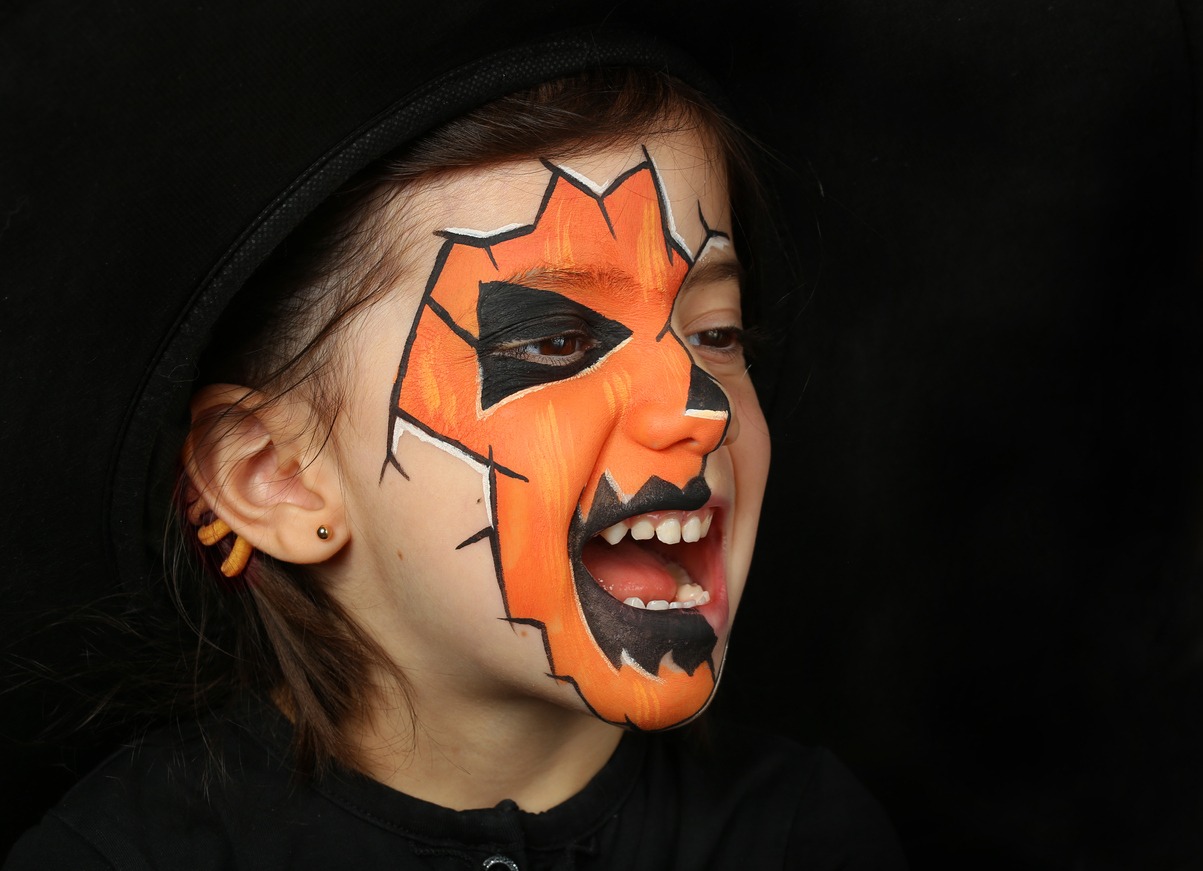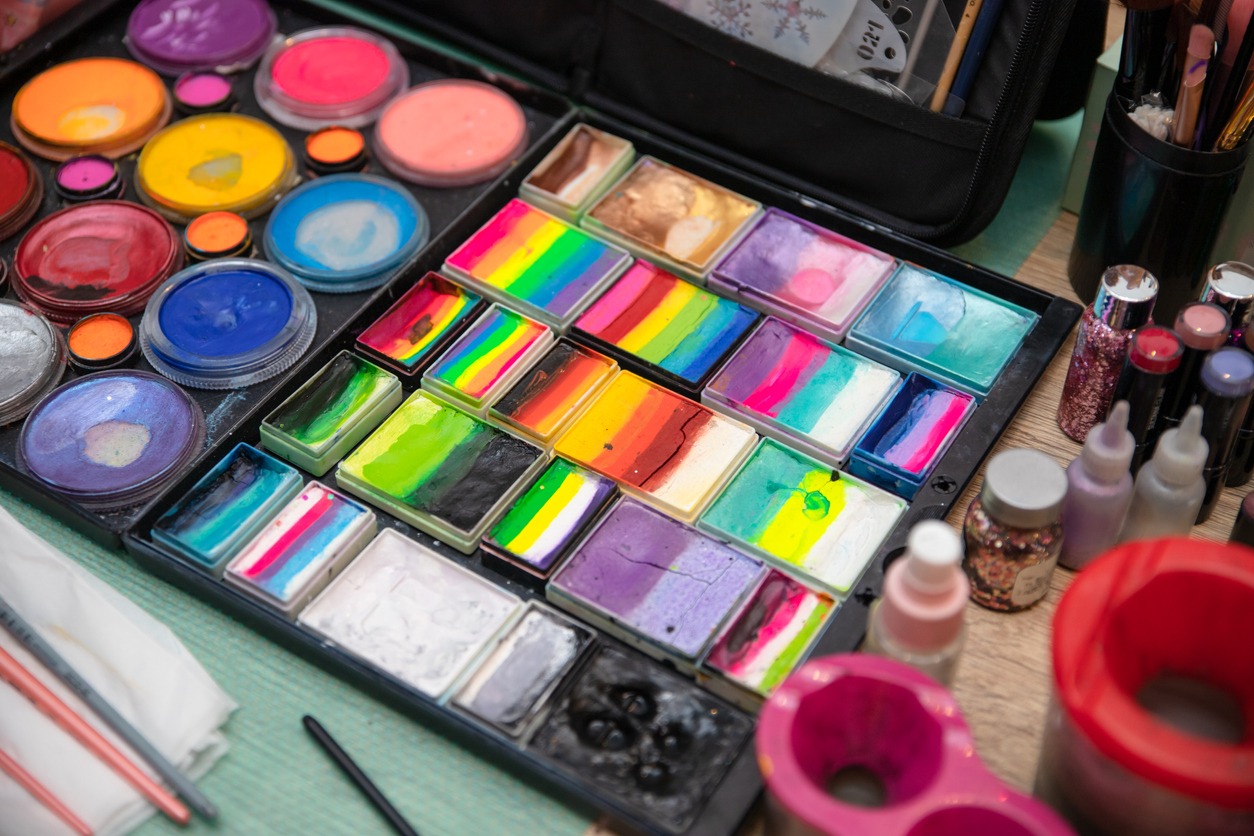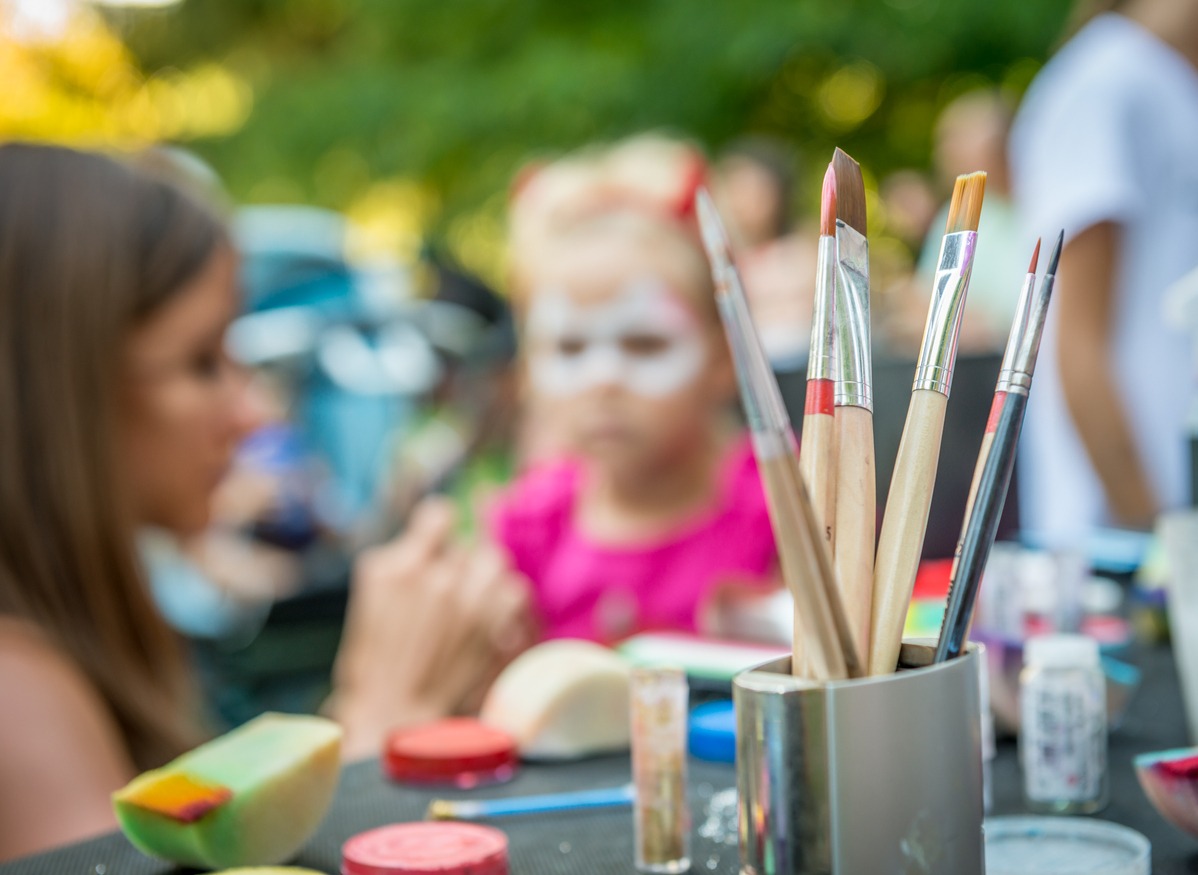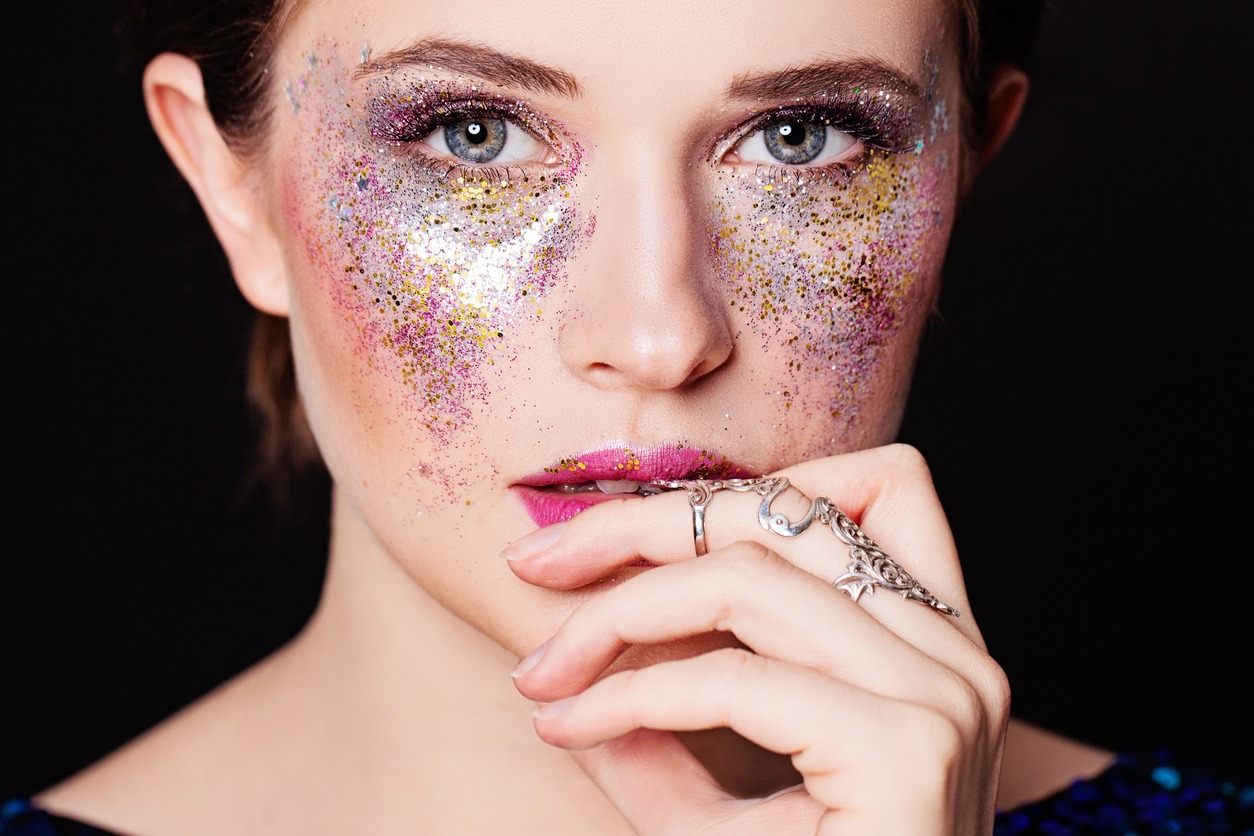Face painting is a fun activity that is especially enjoyable around Halloween, but it must be done carefully to ensure that everyone can take part. Therefore, you are on the right track if you want to use face paint but have sensitive skin. This article offers tips on how to apply and choose face paint without sacrificing your skin. Read on!
Tip #1 – Use the Right and Proper Products
Choosing the right products at the outset is crucial. Use only cosmetic-grade items that adhere to the laws of your nation. Make sure your face paint complies with FDA regulations.
Is it Safe to Paint Faces with Acrylics?
Avoid using acrylic craft paints on the face and other exposed body parts. Many of the pigments in acrylic paints are dangerous to use on the skin and can seriously irritate it. It is acknowledged that acrylics can be found at any craft store for less money and with less difficulty, but this does not imply that they are safe. Stick with cosmetic-grade products if you don’t want to cause an allergic reaction that could go wrong.
Can Non-Toxic Paints Be Used to Paint Faces?
Just because something is labeled non-toxic doesn’t mean it’s safe for the skin. It does not imply that it is safe to use or that it was intended to be used on the skin; it simply means that you won’t die from poisoning if it comes into contact with the skin.
Can Face Paint Still Cause an Allergic Reaction?
Yes, allergies can arise from using any cosmetic product. Even the best products can cause allergic reactions, but using cosmetic-grade products lowers your risk.
Always check the ingredient lists, and if you have any questions about any particular ingredients, ask. Ask the face painter if their products are cosmetic grade and if they contain any of the allergens you or your child are allergic to if you or your child are getting painted.
Ask the subject or their legal representative if they have any allergies if you are the painter. If in doubt, it’s best to perform a patch test on the inside of your elbow. Simply apply a small amount of paint, wait 30 minutes, and then wash it off. There’s a good chance you won’t experience an allergic reaction if the skin appears healthy. It might be best to first speak with a doctor if you are experiencing potentially fatal allergic reactions.
Tip #2 – Keep Your Tools Clean
Even if you have the best products in the world, it won’t matter if your application tools are dirty.
To avoid transferring bacteria from the face into your makeup, it is best to use just one sponge per person and, if at all possible, only load the makeup once. Double loading should be avoided whenever possible, even though good face paints have several anti-bacterial properties to reduce the likelihood of contamination.
Do You Need to Use Disposable Tools?
No, you don’t unless you work in a hospital or with patients whose immune systems are weak. Using sterile, freshly cleaned tools is all that is necessary when working with healthy people.
How Will You Keep Your Sponges and Brushes Clean?
It is best to use one sponge per child, wash them thoroughly after each event with antiseptic soap, dry them with a dryer before storing them and do all of this before storing them. When using brushes, try to only load them once. After that, rinse them with water, dunk them in 70% alcohol, and let them air dry completely before using them again.
Tip #3 – Use Clean Water
When face painting, it’s crucial to remember that the water you use should be either distilled water or clean water that is safe to drink. Use only water that is fit for human consumption to avoid contaminating your paints and endangering the person being painted. Always use fresh water, and dispose of any used or contaminated water properly.
Tip #4 – Keep Your Hands Clean
In addition to maintaining your health and those you are painting’s health, keeping your hands clean also helps to project a more professional image than if they are covered in paint. Keep some baby wipes on hand to use when you need to clean your hands after using the restroom or in between serving customers. This will help you avoid cross-contamination.
Tip #5 – Clean Up Your Face Painting Kit
The person who will paint you or your child’s face should always use their own or your clean kit. To prevent dirt, germs, or dirty tissues from contaminating their kit, a good painter will keep a tidy kit and stop in between customers to clean up.
Tip #6 – Avoid Painting Over Wounds or Damaged Skin
Applying face and body paint to skin that is not in excellent condition is never safe. It is best to avoid painting on skin that already has a rash or a wound because doing so could spread infection and exacerbate the condition.
If at all possible, it is best in this situation to paint over an area that is distant from the troublesome area so that there are no chances of contamination when the person rinses the makeup off.
Not only is it safer for the person getting painted to keep the paint away from those areas, but doing so also stops the painter from bringing bacteria from the area to the next person in line.
Tip #7 – Make Sure You Are Painting Over Clear Skin
Offer a baby wipe so the person getting painted can clean themselves if their face is dirty or the area you are painting over is dirty. By doing so, you’ll be able to prevent contaminating your tools, which could then contaminate your paints or the person in front of you.
Tip #8 – Only Use Safe Glitter – No Craft Glitter
This is a crucial issue because craft glitter is frequently used at music festivals and other major events. Although craft glitter is inexpensive, applying it close to the eyes can be extremely dangerous. because it is made of sharp metal and is frequently not cut in a way that avoids sharp corners.
Glitter that is suitable for use on the face is cut into specific shapes and sizes and made from materials like polyester or natural resins. Moreover, only safe pigments are used in cosmetic-grade glitters.
Conclusion
If you have sensitive skin, there are many factors to take into account when using face paint. You can enjoy face and body painting without being concerned about any health risks by following these safety tips.




